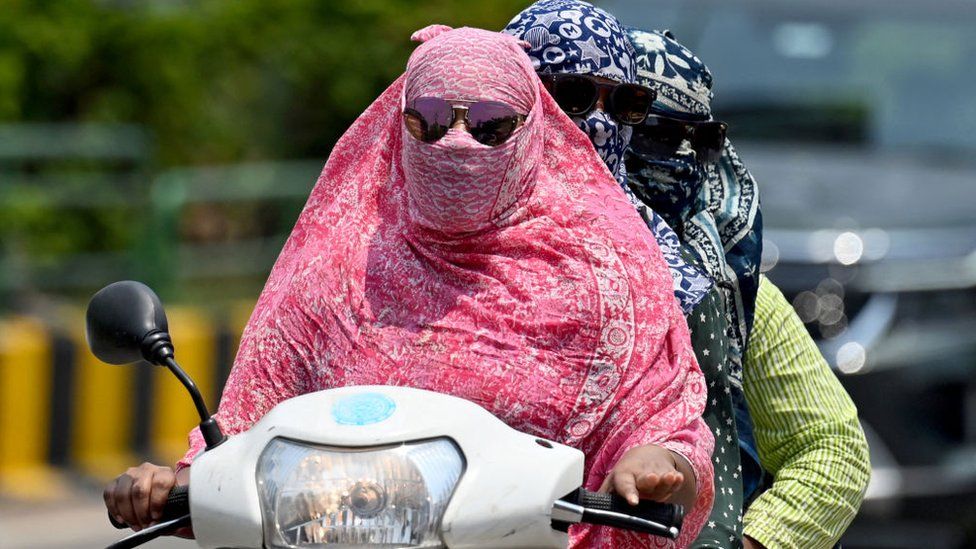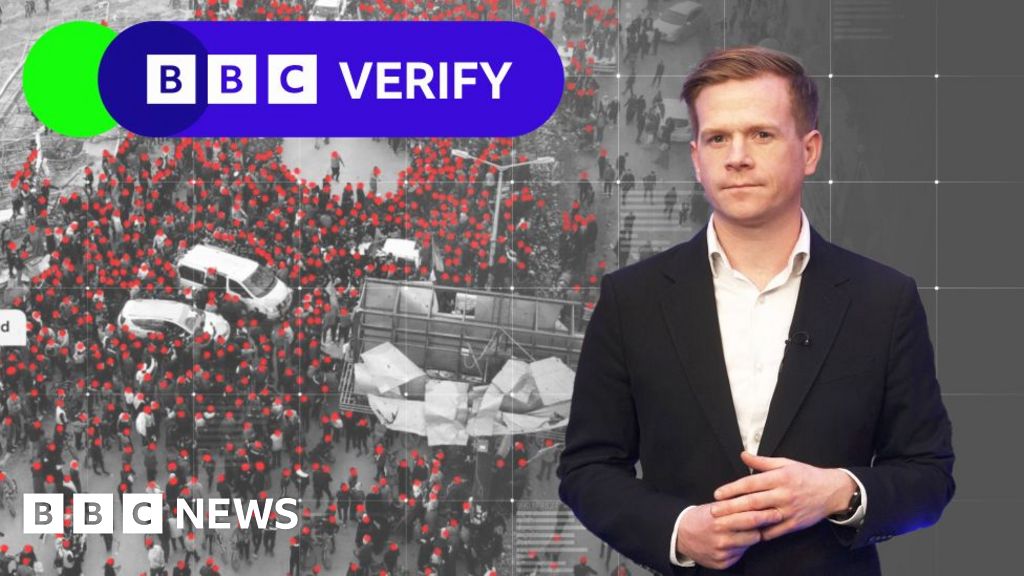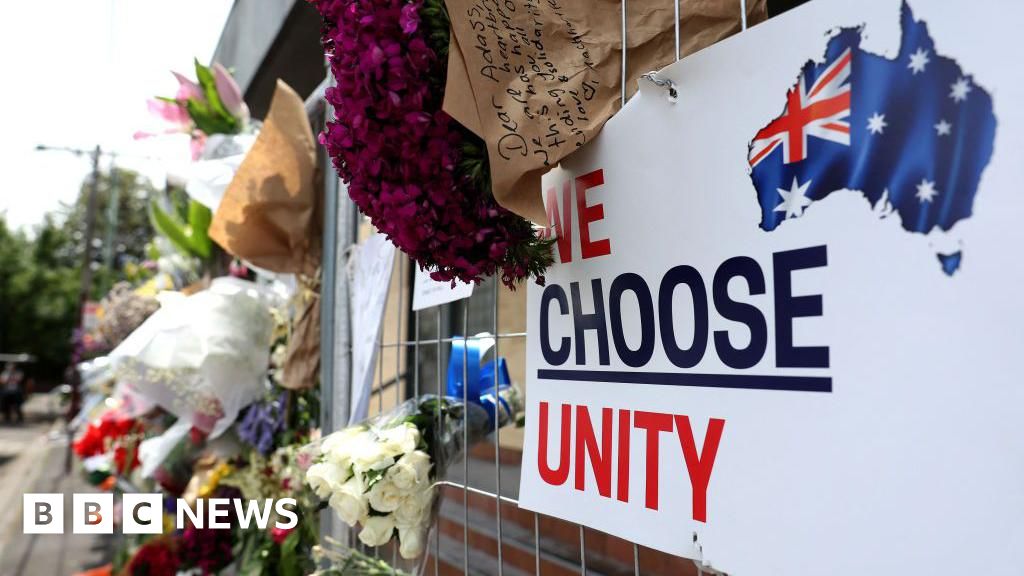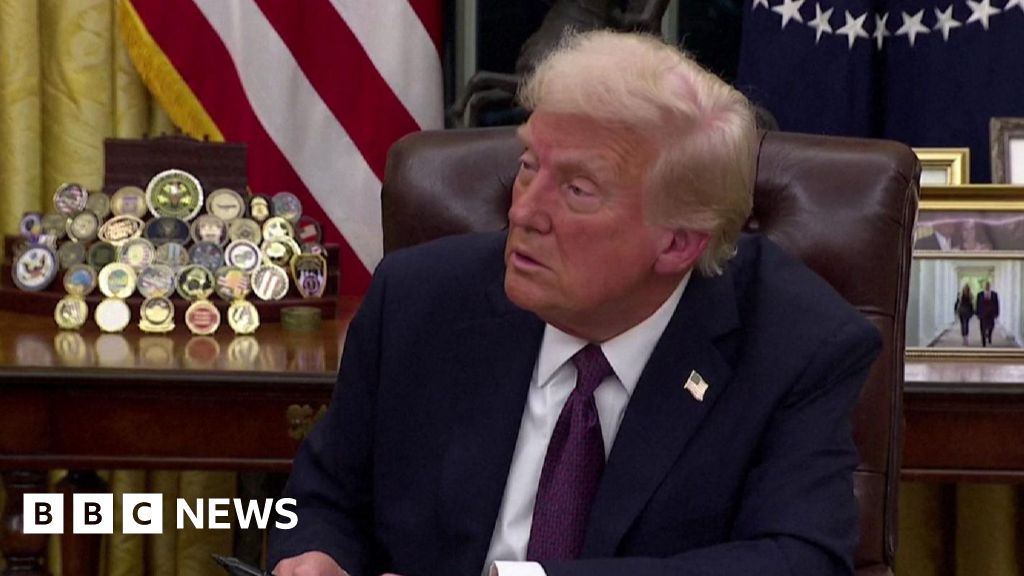ARTICLE AD BOX
 Image source, Getty Images
Image source, Getty Images
Several parts of India are experiencing intense heatwaves
By Cherylann Mollan
BBC News, Mumbai
When Karan Shah, 32, goes to vote in the western state of Gujarat, he and his 59-year-old mother will be armed with water bottles and fruit to beat the heat. To escape long queues, they plan to reach the polling station early in the morning.
Mr Shah and his mother are among millions of Indians who will cast their ballots in the third phase of the general election on Tuesday, when 94 constituencies across 12 states go to the polls.
India's general election is usually held every five years in April and May, and voters and polling officials are used to dealing with the harsh summer heat. But this year, India - along with other parts of Asia - is experiencing one of its hottest summers on record, in line with recent years. Last month, at least nine people died due to heat-related issues as searing temperatures hit the country.
In April, federal minister Nitin Gadkari fainted while addressing a campaign rally in the western state of Maharashtra, later explaining that the crowded venue and high temperature had made him feel uneasy. Days before that, in the eastern city of Kolkata where temperatures soared above 43C, a television anchor passed out while presenting weather updates. She later said that the studio had become extremely hot as its cooling systems had failed.
And there is no respite in sight - India's weather department has predicted longer and more intense heatwaves in May.
Election authorities are taking steps to address this by supplying drinking water in polling booths and extending voting timings.
But some experts have speculated that the extreme temperatures may be impacting voter turnout.
In an interview last week with India Today news channel, N Gopalaswami, a former chief election commissioner, said that the heat "may have had a role" to play in lower voter numbers this year. Compared with the 2019 election, the first two phases of polling held on 19 April and 26 April saw at least a 3% dip each in voter turnout.
Mr Gopalaswami also suggested that a tweak to polling schedules in the long term - holding elections between the cooler months of February and March - might encourage more people to vote.
Image source, Getty Images
Image caption,Voters take shelter from the sun outside a polling booth in Chhattisgarh state in April
Political parties, too, have been tweaking their campaign schedules this year due to the heat. Last week, Bharatiya Janata Party (BJP) lawmaker Rajeshwar Singh told local media that party workers were visiting voters' homes only in the mornings and evenings, while afternoon meetings were being held indoors.
Dr Amit P Gawnde, a pulmonologist, says that spending long hours in the heat can lead to an electrolyte imbalance, which in turn can cause fatigue, dizziness and blackouts.
"Patients with comorbidities, like heart ailments or high blood pressure, face a higher risk of experiencing heat-related problems," he says.
Voters say they are apprehensive about the heat but will take precautions.
Sukhada Khandge, who lives in Pune district in Maharashtra state, says that she will cover her face and body when she steps out to vote on Tuesday.
Pune is one of the hottest regions in Maharashtra, which will vote in two more phases on 13 and 20 May. For the past week, Pune has been experiencing temperatures between 39C and 42C and weather officials say this is likely to continue in the coming days.
Ms Khandge says she will vote early in the morning to avoid crowds and the heat.
In the western state of Gujarat - where polling will be held in 26 constituencies on Tuesday - Dipakumar Hasmukhbhai Patel says he aims to travel to his polling booth in Surat city on his motorbike in the morning.
"Towards the afternoon, it gets so hot that you have to travel by car," he says, adding that he is aware that one can get a heatstroke or suffer from dehydration if not careful.
Deepika Jigar Tumdawala, 31, who is also from Surat, says that she finds voting during this time of the year uncomfortable, especially since she lives in an industrial area and the fumes from factories add to the heat.
"But voting is my democratic right so I'll brave the heat and go and vote," she adds.
Image source, Getty Images
Image caption,Children jump in a pond to cool off
Apprehension about the heat are likely to persist among voters in the coming weeks as well.
In the southern state of Telangana, which is set to vote on 13 May in the fourth phase, the scorching heat has already become a topic of conversation.
Pratibha, 40, who uses only one name, told BBC Telugu that she suffered a heatstroke just days ago and was experiencing severe headaches.
"It is difficult to come out to vote in these temperatures. It is going to be challenging to take elderly people to the polling stations. Polling should start earlier for them," she said, adding that she plans to take her 70-year-old mother to vote early in the morning.
For the first time this year, the Election Commission - which oversees elections in the country - has allowed people older than 85 years and those with disabilities to vote from their homes. The commission also issued guidelines in March to minimise the impact of heat on the elections.
It instructed electoral officers to make drinking water and oral hydration salts available at polling stations, keep medical kits handy and have sufficient polling staff to prevent delays.
Electoral officials in Telangana have also extended voting times by an hour in the evening in certain areas to make it more comfortable for people to cast their ballots.
Chintala Ramesh, 46, who will vote in the state, says that it has become so hot that fans are no longer effective. He wants high-capacity coolers and stations dispensing cold water to be set up at polling booths.
But like Ms Tumdawala - and millions around the country - he says that the heat won't stop him from voting.
"We shouldn't let high temperatures stop us from exercising our right to vote," Mr Ramesh says. "It is our responsibility as citizens."

 8 months ago
18
8 months ago
18








 English (US) ·
English (US) ·